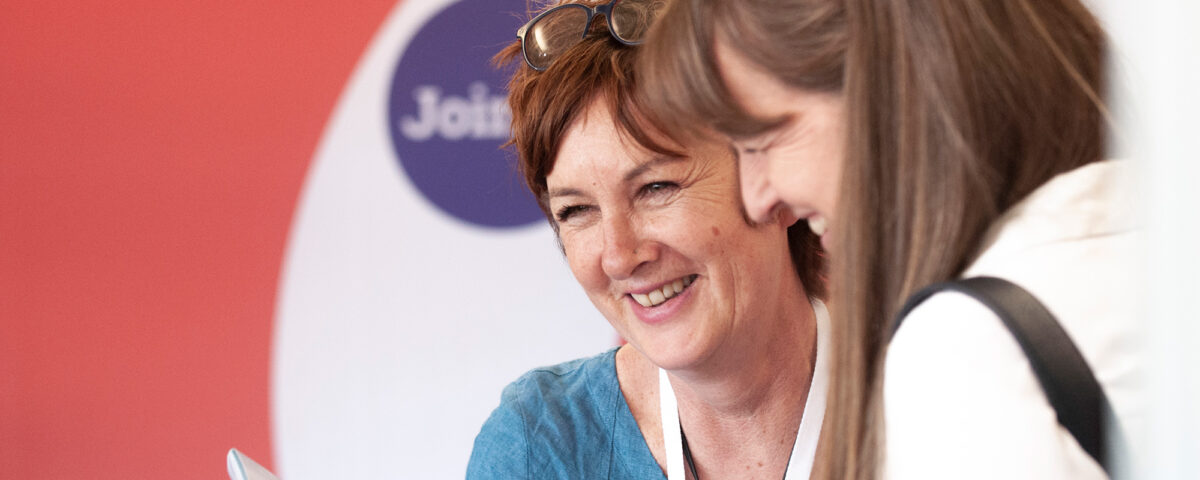Reflections of an NHS retiree…
Read our Society Chair's honest and thought provoking blog as she invites us on her journey from public sector to independent consultancy and shares that whilst it has been difficult at times, there has been so much learning!

Name
Day job
Independent Tissue Viability Consultant
Current SoTV role
Chair
Taking the retirement plunge
In July 2020 and in the middle of a pandemic, I left the NHS after a 40-year career! This wasn’t I must add, because of the pandemic, it was because of a pre-planned ambition to retire a bit earlier and move to the Lake District before I was too old to get up on the fells!! We hadn’t anticipated a global pandemic!! I had finished my NHS career leading a community Tissue Viability team and had done this for about 13 years. It was a job that I loved, and I felt I had good levels of expertise in my speciality. In addition to gaining an MSc in Skin Integrity, Skills and Treatment at the University of Hertfordshire, I was involved in local and national strategy relating to wound care, spoke regularly at national conferences, was part of the national campaign Legs Matter and was a Trustee for the Society of Tissue viability. Because of this, I was confident of my positioning within the speciality and wasn’t ready to give up my passion for wound care as I exchanged the security of an NHS contract for an independent tissue viability consultancy business!
The transition from public sector to independent consultancy has been difficult at times but there has been so much learning! I thought it may be helpful both for myself and for those considering a similar journey to reflect on my experience.
Difficult times
First, and I am happy to be challenged on this, I realised that quickly you lose your status as a ‘Key Opinion Leader’, particularly in the eyes of the commercial companies when not working directly in the NHS. This came as a surprise and had a very negative impact on me, it created a sense of self-doubt, I questioned my knowledge and skills, the ability to offer a clinical opinion and my expertise within the wound care world!
Ultimately, I started to feel worthless with nothing to offer and rather demoralised. It astounded me that within a matter of weeks you could go from a well-respected, credible wound care practitioner to someone who was a ‘has been’ and out of touch because I wasn’t working directly in the NHS! I need to point out that this was mainly my perception, but like in any job, people pledge to keep in touch or to offer work, but when moving into an independent role, these regular contacts fall away, and you can be left feeling isolated. I’m not saying this out of self-pity, it’s just what happens, and you need to be prepared for it!
This period of worthlessness and doubt then passes and what happens is that you reconnect with strong, likeminded allies and build a network that helps to move you forward in your new independent role. You soon become aware of who is important to you, those you respect and admire, those who offer an ear and will always be willing to advise and support, those who are always there! For those of you who helped me during this time (You know who you are!) a huge thank you! The conversations with these amazing people reinforced the passion I have for wound care and helped me focus on what I really wanted to do (and not do) as an independent tissue viability consultant.
Choose your work carefully
When starting out, there is the risk of just accepting any work offers that come your way in case nothing else comes in, but my advice to anyone going into this role is be true to your principles and unless there is no other choice, try and set a criterion for what you will accept – What are your strengths? What are you passionate about? How can your expertise make a difference? Will this initial commission lead to other opportunities? How will this piece of work impact on the wider wound care agenda? Will this request impact on your credibility as an experienced Tissue Viability Nurse? Will this request be rewarding and make you proud?
I strongly believe that it is only through transformative education and quality improvement processes that better outcomes in wound care can be achieved – this is what I wanted my consultancy to focus on. My qualification and experience in teaching provided the ability to do this well and I had the experience of implementing quality improvement projects. Although a generic (all wounds) TVN, my passion has always been lower limb/leg ulcer care and with leg ulceration being a particular focus of the National Wound Care Strategy Programme (NWCSP), I was keen to contribute to this wider improvement agenda and wanted my consultancy work to predominantly reflect this. I was also keen to continue to work with the NHS if possible as that is where I felt I could really make a difference.
The Society of Tissue Viability
I have to say that being a Trustee for the Society of Tissue Viability has helped me considerably with the transition into my new role. Although a Trustee before my retirement from the NHS, being part of this amazing charity keeps you connected with a ‘family’ of clinicians and academics whose common purpose is to improve the lives of people at risk of or living with wounds and provides opportunities for personal growth and development. In addition to being involved in a variety of projects and initiatives, being a Trustee has also given me insight into the running of a charity and the strategy required to fulfil our mission. The kindness and mutual support shown by everyone involved is humbling and I am incredibly proud to have just stepped up as Chair of this incredible Society. This brings fresh challenges and responsibilities, but I am excited about this next phase of my ‘wound care’ life. I would strongly recommend anyone with an interest in wound care to become a member of the Society of Tissue Viability and one day you too could be a Trustee – the experience is life and career changing!
My role in Legs Matter
I had been fortunate to be part of the Legs Matter coalition right from its launch in 2018 and continued giving my time to this group after I left the NHS in my capacity as a Society of Tissue Viability Trustee. Being part of a collaboration of not-for-profit organisations and patient partners who are so passionate about improving leg and foot care in the UK is hugely rewarding and I was constantly in awe of the knowledge held by these fabulous people. Not many of us can ever expect be part of such a successful national campaign like Legs Matter. If ever you get a chance to do something like this, I would urge you to do it! It opens so many opportunities for you.
So where am I now?
Three and a half years on and I am busy! It’s a very different ‘busy’ to working in the NHS though… I travel a fair bit and have periods of time away from home. I have never spent so much time on a train (or battling the challenges of our rail service!!) and I’m seeing parts of the UK I’ve never visited before! Working local to where I live is an absolute joy with my drive to work passing through stunning scenery and iconic mountain ranges and I rarely sit in traffic jams!
Most of my work has been community based supporting NHS community nursing teams and General Practice Nurses and what I have witnessed confirms that the challenges faced in wound / leg ulcer care are not related to one or two geographical locations! Everyone is having the same issues – staff shortages, increased referral rates, patients who are sicker and more dependent on health and social care services and a workforce who are tired, stressed and burnt out!
But what I have found is by providing structured support to clinicians involved in wound care, delivering education that is meaningful and enjoyable and developing systems that encourage personal growth does lead to an improvement in staff morale and motivation and ultimately better wound / leg ulcer healing outcomes for patients. The pleasure I get from seeing the excitement and pride in a team as they measure the impact of implementing immediate and necessary care, or when someone’s leg ulcer heals or when a patient’s ‘wet legs’ have finally dried up because of therapeutic compression is immense and reinforces why I wasn’t ready to stop after I left the NHS.
We are in a time of crisis, and with many experienced nurses including Tissue Viability specialists choosing to retire early from the NHS we are losing a large cohort of expertise. Utilising this expertise through the commissioning of independent consultancy is just one solution that some organisations are making to support the massive quality improvement agenda that is so desperately needed in wound care, and for that I am grateful.














